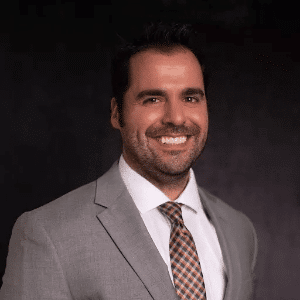Perder a un ser querido en un accidente evitable es una de las cosas más duras por las que alguien puede pasar. Cuando la negligencia de otra persona causa esa pérdida, ya sea en un accidente de coche, accidente de camión, u otro evento trágico, es natural querer justicia. Pero muchas familias no se dan cuenta de que hay un límite de tiempo para emprender acciones legales.
En Utah, ese plazo se rige por la ley de prescripción de muerte por negligencia de Utah. Pasar por alto el plazo podría significar la pérdida de su derecho a presentar una reclamación por completo, incluso si la evidencia es fuerte y la pérdida fue devastadora.
Si se encuentra en esta situación legal, esto es lo que necesita saber sobre el tiempo de que dispone, las posibles excepciones a la prescripción y por qué está bien pedir ayuda.
Para una consulta gratuita con un abogado con experiencia en muerte por negligencia de Utah, por favor llame al (209) 600-4389 o envíenos un mensaje en línea hoy.
¿Cuál es el plazo de prescripción para la muerte por negligencia en Utah?
Bajo el estatuto de muerte injusta de Utah, por lo general tiene dos años a partir de la fecha de la muerte de su ser querido para presentar una demanda por muerte injusta. Este plazo se aplica a la presentación de una demanda en un tribunal civil. Si pasa el plazo, su demanda puede prescribir, y el tribunal probablemente la desestimará, sin importar cuán clara pueda ser la responsabilidad.
¿Cuándo empieza el reloj?
En la mayoría de los casos, el plazo de prescripción comienza en la fecha del fallecimiento, no en la fecha del accidente que causó la lesión mortal. Por ejemplo, si su ser querido resultó gravemente herido en un accidente el 1 de enero, pero falleció el 15 de enero, el reloj de dos años comenzaría normalmente el 15 de enero.
Dos años pueden parecer mucho tiempo, pero los casos de homicidio culposo son complejos. Cuanto antes se involucre un equipo legal, mayores serán sus posibilidades de obtener pruebas, identificar a todas las partes responsables y construir un caso sólido.
¿Existen excepciones al plazo de prescripción del delito de Utah?
En ciertas situaciones, el plazo de prescripción de muerte por negligencia en Utah puede ser pausado o ampliado. Este concepto legal se conoce como tolling.
Algunas excepciones limitadas son:
- El acusado ocultó la fechoría. Si la parte responsable ocultó activamente su papel en la muerte de su ser querido, la prescripción puede suspenderse hasta que se descubra el fraude.
- El caso implica a un beneficiario menor de edad. Si la persona que va a presentar la demanda por homicidio culposo es menor de edad (por ejemplo, un hijo del fallecido), el tribunal puede conceder más tiempo, aunque esto depende de los hechos del caso, y la representación legal puede seguir siendo necesaria.
- Incapacidad mental. Si un heredero cualificado estaba mentalmente incapacitado y no podía emprender acciones legales en el momento del fallecimiento, el tribunal puede suspender el plazo hasta que recupere la capacidad.
Las normas de peaje se aplican estrictamente en Utah y requieren interpretación jurídica. Si una de estas excepciones podría aplicarse a su caso, hable inmediatamente con un abogado de muerte por negligencia.
Por qué las familias a veces esperan y por qué eso puede perjudicar su caso
Muchas familias en duelo dudan en emprender acciones legales, y es totalmente comprensible. Están lidiando con el shock, los preparativos del funeral y la pérdida emocional. Las demandas pueden parecer abrumadoras o incluso inapropiadas.
Pero la realidad es que esperar demasiado puede poner en peligro su caso. Con el tiempo, las pruebas pueden desaparecer, los testigos se olvidan y es más probable que los peritos de seguros nieguen la responsabilidad.
Y lo que es más importante, si el plazo de prescripción de la muerte por negligencia de Utah expira, puede perder por completo su derecho a reclamar una indemnización.
Hablar con un abogado no significa precipitarse en una demanda. Significa que estás protegiendo tus opciones para tomar una decisión informada cuando llegue el momento.
¿Quién puede presentar una demanda por homicidio culposo en Utah?
La ley de Utah permite a determinadas personas solicitar una indemnización en un juicio por homicidio culposo.
Posibles herederos bajo el estatuto de muerte por negligencia de Utah incluyen:
- El cónyuge superviviente,
- Hijos adultos,
- Padres supervivientes,
- Hijastros (se aplican condiciones específicas), e
- Cualquier pariente consanguíneo, si se aplica la sucesión intestada.
La acción por homicidio culposo puede ser presentada por los herederos o por el representante personal en beneficio de los herederos. Si un adulto fallecido tenía un tutor legal, éste puede presentar la demanda en beneficio de los herederos.
¿Qué puede cubrir una demanda por homicidio culposo?
Las demandas por homicidio culposo tienen por objeto proporcionar alivio económico y justicia a los familiares supervivientes.
Una reclamación que prospere puede incluir una indemnización por:
- Gastos de funeral y entierro;
- Facturas médicas relacionadas con la lesión o enfermedad final;
- Pérdida de ingresos y apoyo financiero que el fallecido habría proporcionado;
- Pérdida de compañía, cuidados y orientación; y
- Dolor emocional y sufrimiento de los familiares supervivientes.
Aunque no hay dinero que pueda compensar su pérdida, hacer que la parte responsable rinda cuentas puede ofrecer un cierre y ayudar a su familia a seguir adelante.
Contacto Silva Injury Law Hoy
Si usted perdió a un ser querido en un accidente evitable, y se pregunta cuánto tiempo tiene para presentar una reclamación, ahora es el momento de obtener respuestas. El estatuto de limitaciones de muerte por negligencia de Utah es estricto, pero todavía puede haber tiempo para actuar.
En la ley de lesión de Silva, ofrecemos consultas libres, consejo honesto, y la representación experimentada para las familias a través de Utah. Usted no necesita decidir cualquier cosa hoy. Apenas alcance hacia fuera a nosotros en línea o llame (209) 600-4389, y déjenos ayudarle a entender sus opciones.









 EMAIL
EMAIL  Pregunte a AI
Pregunte a AI  Acceda a
Acceda a